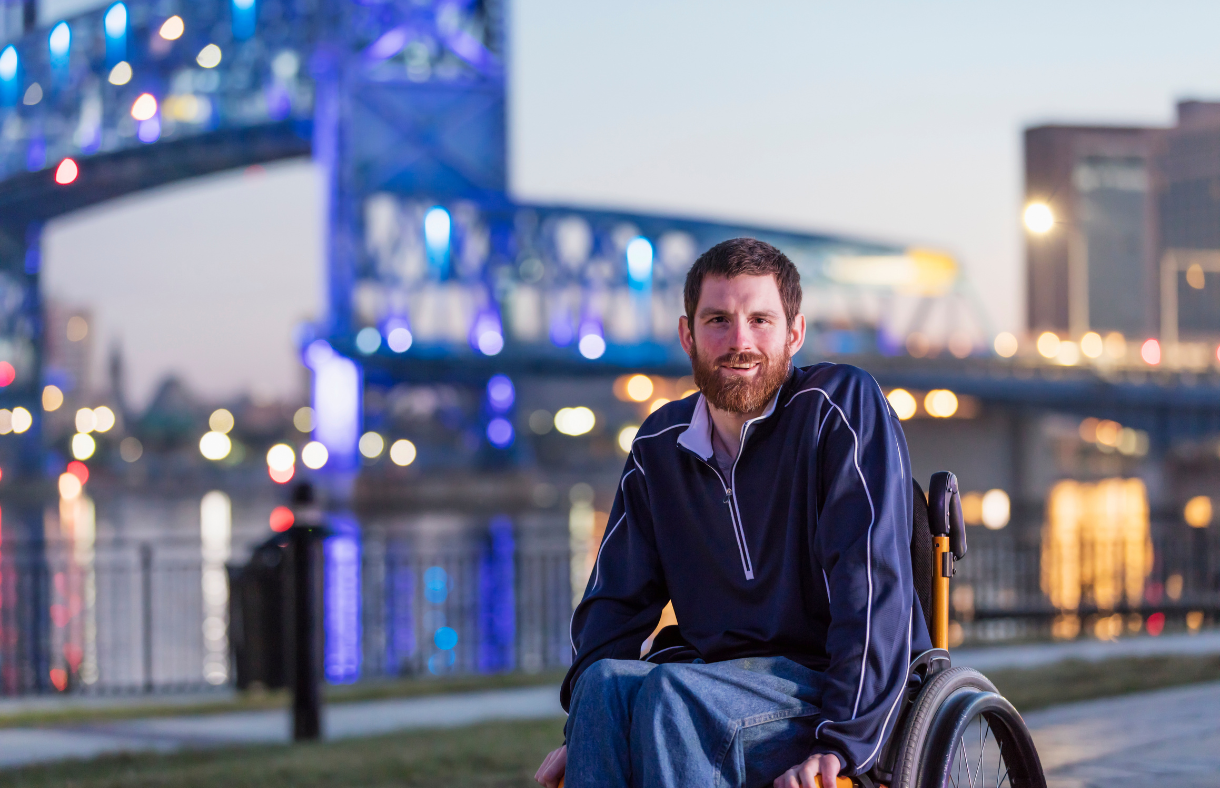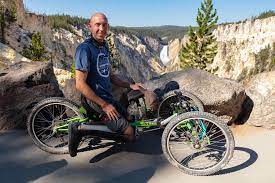It’s much better to do something small than to do nothing at all. Perhaps all the more so when it comes to large-scale problems such as environmental issues. Big change begins with “ordinary” people making “little” changes on their own levels.
People with disability in the family have extra stakes in environmental and climate issues, for at least two reasons. Reason #1 is that disability—whether it impairs mobility, perception, judgment, or resilience—makes people more vulnerable to illness and natural disasters. We’ve talked about this issue before, and will do another post on it soon. But today, I want to focus on the less-discussed Reason #2: special disability concerns related to environmental impact and “carbon footprints.”

There Are Limits
Disability shouldn’t stop anyone from getting an education, holding a job, or doing their part for the planet. Yet many common tips for reducing personal carbon footprint are impractical, at best, where disabilities are involved.
- Bicycles, foot power, and stairs require only human-generated energy; but many people are physically unable to use them.
- Public-transportation vehicles, even when physically accessible, can be an overwhelming environment for anyone with sensory disorders.
- Larger vehicles, even electric ones, leave bigger carbon footprints; but for wheelchair/scooter users and people with limited muscle flexibility, a large vehicle may be the only option.
- Where a family member is sensitive to cold or heat, there are limits to how household temperatures can be adjusted for energy efficiency.
- Allergies, food sensitivities, or certain medications can make it difficult to “eat local.”
- And, of course, many essential assistive-technology items need extra power sources. If important medical information could be needed on short notice, even turning off smartphones at night may not be a practical option.
Do Your Best, Don’t Worry About the Rest
The most important thing (as with any aspect of life with a disability) is to focus on what you can do. Consider what eco-friendly tips are not affected by your limitations:
- If you drive, get the “greenest” vehicle you can find.
- Avoid unnecessary acceleration when driving.
- Take the first available parking spot, rather than circling the lot looking for a better one. (Qualifying for “disabled” parking is an advantage here, as most accessible spots are easy to locate near entrances. See also our Parking Mobility app review.)
- Buy secondhand. (And not just for clothing and other universal needs. Many accessible vehicles, and some other assistive-technology items, are good for more than one owner.)
- Choose home appliances and other power-operated (or water-using) items for their energy efficiency, durability, and low maintenance. And before getting anything new, be sure you really need it.
- Make your whole home as energy-efficient as possible. In most places, you can get a professional home energy audit: they cost a few hundred dollars, but can save thousands in the long run. (Read this “Ask the Contractor” Forbes article for more on energy audits.)
- Carry your own water bottles, shopping bags, and coffee mugs.
- Recycle whatever you can.
Depending on your individual situation, there may also be ways you can do without a car, eat a farmer’s-market-based diet, or apply other more general tips.
Nothing About Us Without Us
Anybody can also write national, state, or local officials with concerns and suggestions. Particularly, watch for “town hall” meetings (many have virtual-attendance options) where citizens are invited to publicly share their thoughts on specific issues.

This is doubly important for traditionally underrepresented groups such as disabled people. City officials may have the best intentions, but without input from different points of view, they won’t be clear on what needs doing—and may even create a new problem. (For example, there are cases of cities creating bicycle lanes, only to find that these lanes block wheelchair access to bus stops.)

———————————–
Finally, remember the most important universal tip of all: “It would be too much bother” is not reasonable cause for rejecting any idea out of hand!

